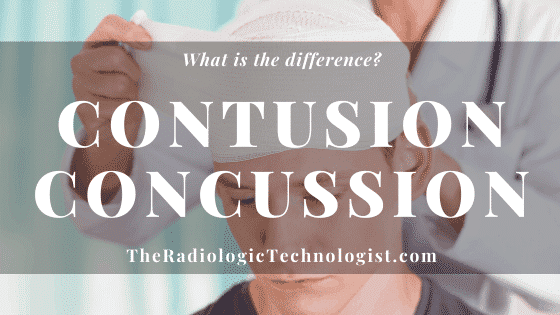What Is The Difference Between Contusion vs Concussion?

What is the difference between contusion vs concussion? This article is going to explain these two words and some ways you can see if a head injury is contusive or not.
With so many myths out there and people who believe they can get injured by just touching another person, it is vital that people understand what these terms mean.
Contusion vs Concussion – Common Causes
Common causes of head injuries are concussions and contusions. You should know that there is a big difference between these two things.
A concussion is where your brain has been “knocked out”. When this happens, the tissues in the brain stop functioning and you can become comatose for up to a week or more.
When you have this type of head injury, you may not be able to recognize you have one or will be confused by the fact that your brain is no longer working.
The main thing to remember when you have a suspected concussion is that you must go to the hospital right away.
A contusion is a medical word for “bruise.” If you have bleeding in your brain, it is labeled a contusion.
A contusion could be detected by diagnostic imaging. Typically a CT Scan or MRI shows bleeding in the brain.
Interestingly, a CT Scan would only take about five minutes to show the bleed. Whereas an MRI could take up to 45 minutes or longer.
Contusion vs Concussion – Symptoms
There are a number of symptoms of a concussion. Headache, nausea, vomiting, and drowsiness are all signs that your brain has been affected.
The next day, you may have trouble getting up out of bed. Not just the normal sleepiness either. When you have head trauma and notice it is harder than usual to get out of bed, notify your doctor.

If you have any memory problems, like forgetting where you were, this could be because you had a concussion.
Take note if you are feeling dizzy, lightheaded, or disoriented, this is also caused by a concussion.
Even if you have a slight chance of getting a concussion, it is still best to stay home and rest. Concussions are common and commonly go undiagnosed.
Exercises to keep your brain healthy
In order to keep your brain functioning properly, it is important that you remain as active as possible. It is especially important to exercise.
There are many different kinds of exercises that will help you stay healthy and strong. One exercise you can do is stretching.
Stretching is one way to stretch the muscles and can be done with any sort of physical activity. If you don’t want to exercise, you can also use non-invasive therapies.
These include massage, acupuncture, and other alternative treatments that will help you to rest your mind and body.
Diagnosing a head injury
In order to know if you have a concussion, your doctor will run some tests on you. Once these tests are complete, you will probably be told if there are any complications.
If you feel like you have a concussion, you need to take steps to keep yourself safe. You will want to follow the instructions given to you by your doctor.
Keep a log of your symptoms so that you can share them with your health care provider.
Conclusion

Most head injuries are from direct contacts, like playing football. So you should always wear protective gear during these types of activities.
Taking care of yourself is essential, so make sure you keep this in mind.

